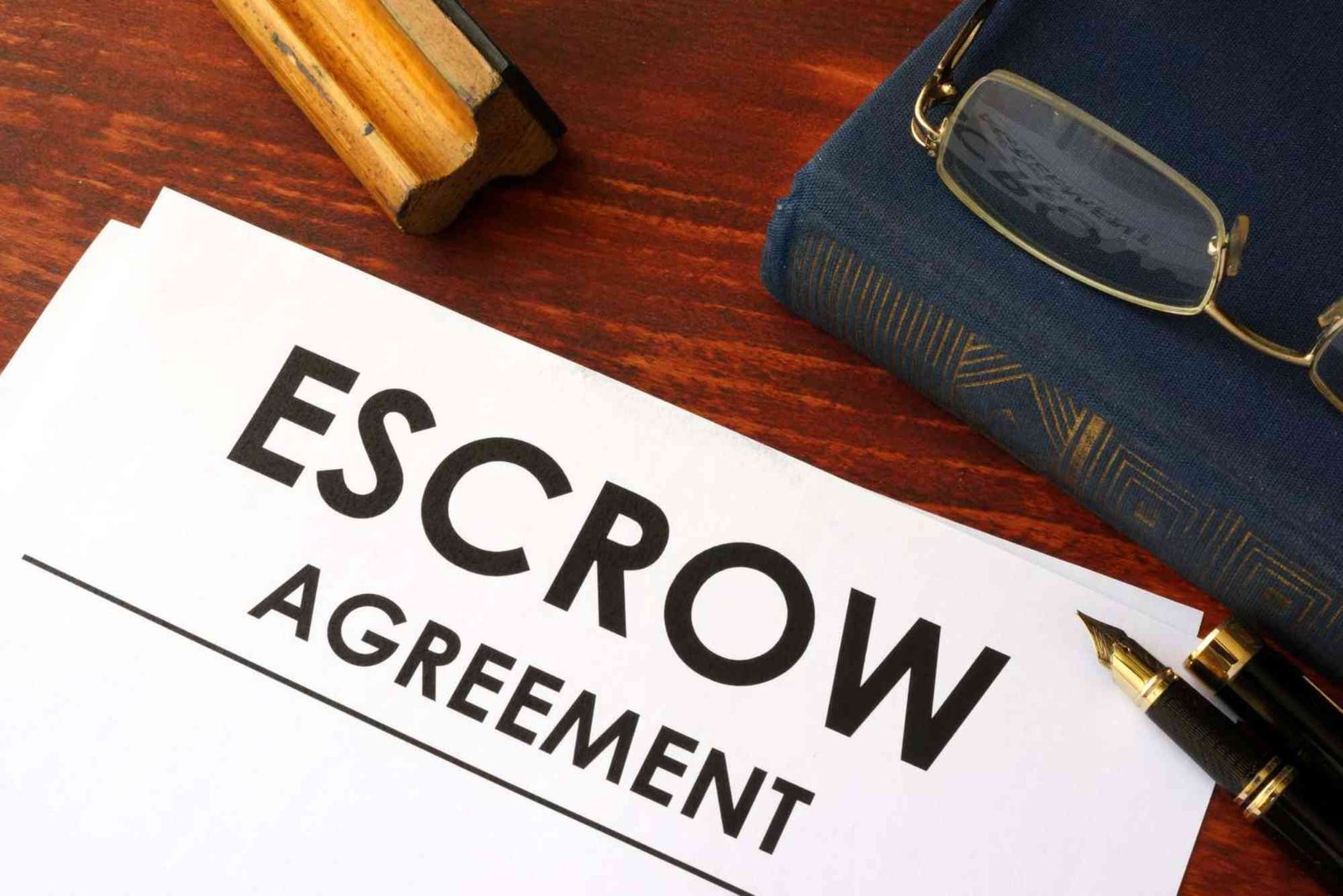Introduction
In real estate transactions, the term “escrow” is a common but often misunderstood concept. Understanding escrow agreements is crucial for buyers, sellers, and agents alike. This article will explore what an escrow agreement is, how it functions in real estate transactions, and why it is vital to both parties involved in the deal.
What Is an Escrow Agreement?
An escrow agreement is a legally binding contract where a neutral third party (the escrow agent) temporarily holds funds, documents, or assets related to a transaction until certain conditions are met. In the context of real estate, this means that the buyer’s funds are held in escrow by an independent party (often a title company or lawyer) until the terms of the sale have been satisfied, such as inspections, financing, or repairs.
This type of agreement protects both the buyer and the seller by ensuring that neither party can take full possession of the property or funds until all obligations have been fulfilled.
How Does an Escrow Agreement Work?
The escrow process in real estate typically follows a clear and structured procedure:
Opening Escrow
Once the buyer and seller agree on the terms of the sale, they will open an escrow account. This usually happens after the buyer has made an offer that the seller has accepted. The buyer then deposits their earnest money or down payment into the escrow account.
Escrow Period
During this period, the escrow agent holds the buyer’s funds and the seller’s title to the property. What Is An Escrow Agreement In Real Estate The agent is responsible for ensuring that the sale conditions, such as repairs or financing approval, are met before closing.
Meeting Conditions
Various conditions must be fulfilled before closing, such as:
- The buyer securing financing
- The property undergoing inspections
- Repairs or modifications being completed as per the agreement
- Title search and insurance being confirmed
Closing the Escrow
Once all conditions have been met, the escrow agent releases the funds to the seller, and the property title is transferred to the buyer. The escrow process ensures that the buyer receives the property in good condition and with a clear title, while the seller is assured that payment has been made.
Why Is an Escrow Agreement Important?
An escrow agreement plays a critical role in protecting both parties during a real estate transaction. Here are some reasons why an escrow agreement is important:
- Security for Both Parties: Buyers are assured that the seller will not receive payment until they fulfill the conditions of the sale, while sellers are protected by knowing the buyer’s funds are secure.
- Neutrality: The escrow agent is a third party that is neutral, meaning they have no vested interest in the transaction other than to ensure that both parties meet their obligations.
- Dispute Resolution: If any issues arise, the escrow agreement provides a mechanism for resolving disputes and ensures that neither party can take advantage of the other.
- Legal Protection: Escrow agreements are legally binding, which gives both parties legal recourse if the conditions of the agreement are not met.
Types of Escrow in Real Estate
There are several different types of escrow accounts in real estate transactions. These include:
Sale Escrow
This is the most common form of escrow used in real estate transactions. It is used when buying or selling property, where both parties deposit funds or documents into escrow until conditions are met.
Escrow for Taxes and Insurance
In some cases, buyers may also open an escrow account to cover property taxes and homeowners’ insurance. The lender typically requires this when the buyer’s mortgage is involved.
Escrow for Repairs
In certain situations, escrow accounts are used to hold funds for repairs that need to be completed before closing the sale. Once the repairs are verified, the funds are released.
What Happens if Escrow Terms Aren’t Met?
If one of the parties fails to meet the conditions specified in the escrow agreement, the escrow agent may hold the funds or property until the matter is resolved. In some cases, disputes may lead to the termination of the agreement and the funds being returned to the buyer or seller, depending on the circumstances.
How to Choose an Escrow Agent?
Choosing a reliable escrow agent is essential to ensure a smooth transaction. Here are a few tips:
- Check Qualifications: Ensure the escrow agent is licensed, bonded, and has experience in real estate transactions.
- Reputation: Look for an escrow agent or company with a good reputation in your community or industry.
- Clear Communication: Your escrow agent should be transparent and communicate clearly with both parties about the process.
An escrow agreement in real estate is an essential part of the home-buying and selling process. It protects both the buyer and seller by ensuring that all conditions are met before funds or property are exchanged. Understanding the escrow process can provide peace of mind and ensure a smooth, successful transaction.
FAQs
Q: What is the purpose of an escrow agreement?
A: It ensures that both the buyer and seller fulfill their obligations before funds or property are exchanged.
Q: How long does an escrow agreement last?
A: The escrow period typically lasts until all sale conditions, like financing and inspections, are met, which can take a few weeks.
Q: Who pays for the escrow fees?
A: Typically, the buyer and seller share the escrow fees, but this can vary depending on local practices.
Q: Can I cancel an escrow agreement?
A: Yes, if both parties agree or if specific conditions are not met, the agreement can be canceled, and the funds may be returned.
Q: What happens if an escrow agent makes an error?
A: If an escrow agent makes an error, they may be held liable for damages, especially if it affects the transaction. Always choose a reputable agent.




